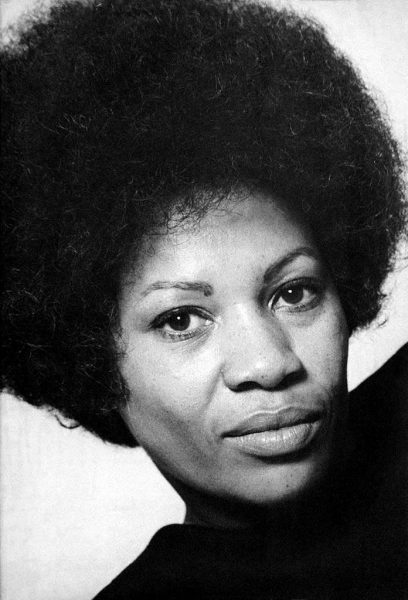
Brief Bio
Toni Morrison (1931–2019) was an American writer who hailed from Lorain, Ohio. Winner of the Pulitzer Prize, the first Black woman and the first Black American to win the Nobel Prize in Literature, and recipient of the Presidential Medal of Freedom (among many other awards), Morrison remains a highly influential writer who is noted for portraying the experiences of Black American women. In world famous novels such as The Bluest Eye and Beloved, as well as in plays, children’s books, nonfiction essays and speeches, Morrison expounded on themes such as identity, racism, love, American slavery, myth, and much more.
Available Works in the Colorado Book Club Resource
The Book Club Resource has 8+ copies of each title available for 8 weeks at a time to reading groups across the state.
Home | Discussion Questions
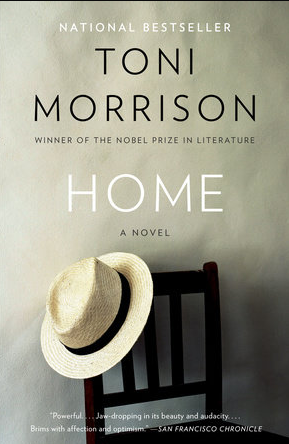 When Frank Money joined the army to escape his too-small world, he left behind his cherished and fragile little sitter, Cee. After the war, his shattered life has no purpose until he hears that Cee is in danger. Frank is a modern day Odysseus returning to a 1950s America mined with lethal pitfalls for an unwary black man. As he journeys to his native Georgia in search of Cee, it becomes clear that their troubles began well before their wartime separation. Together, they must return to their rural hometown of Lotus, where buried secrets are unearthed and where Frank learns at last what it means to be a man, heal, and – above all- what it means to come home. — Cover verso.
When Frank Money joined the army to escape his too-small world, he left behind his cherished and fragile little sitter, Cee. After the war, his shattered life has no purpose until he hears that Cee is in danger. Frank is a modern day Odysseus returning to a 1950s America mined with lethal pitfalls for an unwary black man. As he journeys to his native Georgia in search of Cee, it becomes clear that their troubles began well before their wartime separation. Together, they must return to their rural hometown of Lotus, where buried secrets are unearthed and where Frank learns at last what it means to be a man, heal, and – above all- what it means to come home. — Cover verso.
The Bluest Eye | Discussion Questions
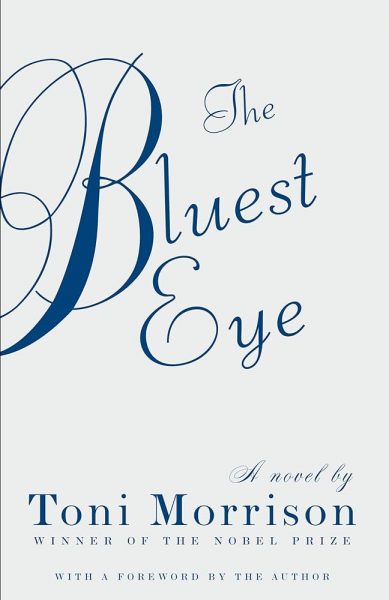 Set in Morrison’s hometown of Lorain, Ohio, in 1940–41, the novel tells the tragic story of Pecola Breedlove, an African American girl from an abusive home. Eleven-year-old Pecola equates beauty and social acceptance with whiteness; she therefore longs to have “the bluest eye.” Although largely ignored upon publication, The Bluest Eye is now considered an American classic and an essential account of the African American experience after the Great Depression. — Britannica
Set in Morrison’s hometown of Lorain, Ohio, in 1940–41, the novel tells the tragic story of Pecola Breedlove, an African American girl from an abusive home. Eleven-year-old Pecola equates beauty and social acceptance with whiteness; she therefore longs to have “the bluest eye.” Although largely ignored upon publication, The Bluest Eye is now considered an American classic and an essential account of the African American experience after the Great Depression. — Britannica
Beloved | Discussion Questions
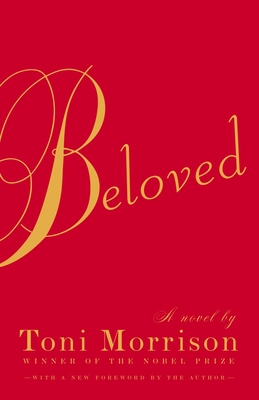 Discover Toni Morrison’s most iconic work in this Pulitzer-prize winning novel that exemplifies her powerful and important place in contemporary American literature.
Discover Toni Morrison’s most iconic work in this Pulitzer-prize winning novel that exemplifies her powerful and important place in contemporary American literature.
It is the mid-1800s and as slavery looks to be coming to an end, Sethe is haunted by the violent trauma it wrought on her former enslaved life at Sweet Home, Kentucky. Her dead baby daughter, whose tombstone bears the single word, Beloved, returns as a spectre to punish her mother, but also to elicit her love. Told with heart-stopping clarity, melding horror and beauty, Beloved is Toni Morrison’s enduring masterpiece. — Penguin
The Measure of Our Lives: A Gathering of Wisdom
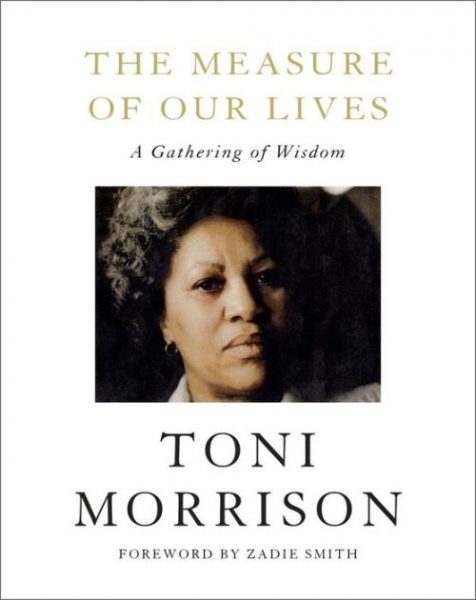 This inspirational book juxtaposes quotations, one to a page, drawn from Toni Morrison’s entire body of work, both fiction and nonfiction—from The Bluest Eye to God Help the Child, from Playing in the Dark to The Source of Self-Regard—to tell a story of self-actualization. It aims to evoke the totality of Toni Morrison’s literary vision. Its compelling sequence of flashes of revelation—stunning for their linguistic originality, keenness of psychological observation, and philosophical profundity—addresses issues of abiding interest in Morrison’s work: the reach of language for the ineffable; transcendence through imagination; the self and its discontents; the vicissitudes of love; the whirligig of memory; the singular power of women; the original American sin of slavery; the bankruptcy of racial oppression; the complex humanity and art of black people. The Measure of Our Lives brims with elegance of style and mind and moral authority. — Penguin
This inspirational book juxtaposes quotations, one to a page, drawn from Toni Morrison’s entire body of work, both fiction and nonfiction—from The Bluest Eye to God Help the Child, from Playing in the Dark to The Source of Self-Regard—to tell a story of self-actualization. It aims to evoke the totality of Toni Morrison’s literary vision. Its compelling sequence of flashes of revelation—stunning for their linguistic originality, keenness of psychological observation, and philosophical profundity—addresses issues of abiding interest in Morrison’s work: the reach of language for the ineffable; transcendence through imagination; the self and its discontents; the vicissitudes of love; the whirligig of memory; the singular power of women; the original American sin of slavery; the bankruptcy of racial oppression; the complex humanity and art of black people. The Measure of Our Lives brims with elegance of style and mind and moral authority. — Penguin
The Origin of Others (The Charles Eliot Norton Lectures)
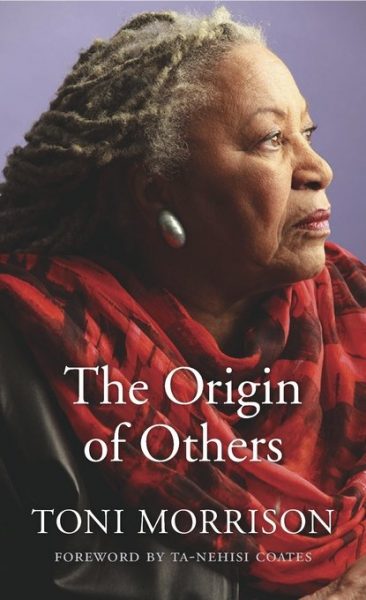 America’s foremost novelist reflects on the themes that preoccupy her work and increasingly dominate national and world politics: race, fear, borders, the mass movement of peoples, the desire for belonging. What is race and why does it matter? What motivates the human tendency to construct Others? Why does the presence of Others make us so afraid?
America’s foremost novelist reflects on the themes that preoccupy her work and increasingly dominate national and world politics: race, fear, borders, the mass movement of peoples, the desire for belonging. What is race and why does it matter? What motivates the human tendency to construct Others? Why does the presence of Others make us so afraid?
Drawing on her Norton Lectures, Toni Morrison takes up these and other vital questions bearing on identity in The Origin of Others. In her search for answers, the novelist considers her own memories as well as history, politics, and especially literature. Harriet Beecher Stowe, Ernest Hemingway, William Faulkner, Flannery O’Connor, and Camara Laye are among the authors she examines. Readers of Morrison’s fiction will welcome her discussions of some of her most celebrated books—Beloved, Paradise, and A Mercy.
If we learn racism by example, then literature plays an important part in the history of race in America, both negatively and positively. Morrison writes about nineteenth-century literary efforts to romance slavery, contrasting them with the scientific racism of Samuel Cartwright and the banal diaries of the plantation overseer and slaveholder Thomas Thistlewood. She looks at configurations of blackness, notions of racial purity, and the ways in which literature employs skin color to reveal character or drive narrative. Expanding the scope of her concern, she also addresses globalization and the mass movement of peoples in this century. National Book Award winner Ta-Nehisi Coates provides a foreword to Morrison’s most personal work of nonfiction to date. — Harvard University Press
Notable Facts
- Toni Morrison’s full name was Chloe Anthony Wofford Morrison. The nickname Toni came from Anthony, a baptismal name.
- During her life, Morrison was a domestic worker, the first Black woman editor at Random House, a teacher at Yale, Bard College, and Rutgers, a guest curator at the Louvre museum, and a single mother to two boys.
- Morrison was a proponent of artistic freedom who wrote for all people, but refused to write for the “white gaze,” and regularly faced criticism for “only” focusing on race or Black people.
- As a 12 year old, Morrison encountered a child who would later inspire the protagonist who prayed for blue eyes in the The Bluest Eye… “I wanted to know how she got to that place.”
Selected Quotes
- Of course I’m a black writer…. I’m not just a black writer, but categories like black writer, woman writer and Latin American writer aren’t marginal anymore. We have to acknowledge that the thing we call “literature” is more pluralistic now, just as society ought to be. – Interview in Newsweek (30 March 1981)
- At some point in life the world’s beauty becomes enough. You don’t need to photograph, paint or even remember it. It is enough. No record of it needs to be kept and you don’t need someone to share it with or tell it to. When that happens — that letting go — you let go because you can. – Tar Baby (1981)
- What I think the political correctness debate is really about is the power to be able to define. The definers want the power to name. And the defined are now taking that power away from them. – New York Times Magazine (11 September 1994).
- To the artist one can only say, not to be confused, — not to be confused. You don’t waste your energy fighting the fever; you must only fight the disease. And the disease is not racism. It is greed and the struggle for power. And I urge you to be careful. For there is a deadly prison: the prison that is erected when one spends one’s life fighting phantoms, concentrating on myths, and explaining over and over to the conqueror your language, your lifestyle, your history, your habits. And you don’t have to do it anymore. You can go ahead and talk straight to me. – A Humanist View (1975)
- It’s important, therefore, to know who the real enemy is, and to know the function, the very serious function of racism, which is distraction. It keeps you from doing your work. It keeps you explaining over and over again, your reason for being. – A Humanist View (1975)
- Anger… it’s a paralyzing emotion… you can’t get anything done. People sort of think it’s an interesting, passionate, and igniting feeling — I don’t think it’s any of that — it’s helpless… it’s absence of control — and I need all of my skills, all of the control, all of my powers — and I need clarity, in order to write — and anger doesn’t provide any of that — I have no use for it whatsoever. – 1987 Interview
- She is a friend of my mind. She gather me, man. The pieces I am, she gather them and give them back to me in all the right order. – Beloved (1987)
- You free. Nothing and nobody is obliged to save you but you. – Home (2012)
Sources
*
Book club sets are circulated to participating libraries via the CLiC courier. Read all about the program on the Book Club Resource landing page. If you are interested in receiving book club sets but are not already a member library, use the online form to get signed up.
Since the BCR has always relied on book donations, we are deeply grateful to all of the institutions and individuals that have donated sets and helped make the collection stronger. Please contact bookclub@coloradovirtuallibrary.org for questions or to discuss donations.
- The Secret Lives of Book Club Sets - June 12, 2025
- Book Clubs Can Be Prideful - June 5, 2025
- Fast Facts – Kits and Book Club Sets - May 7, 2025